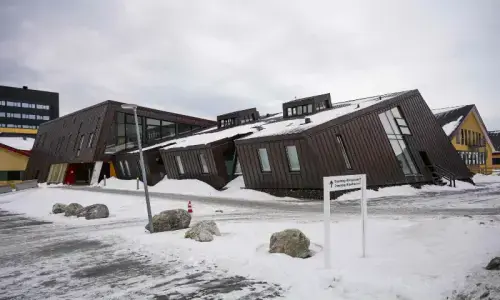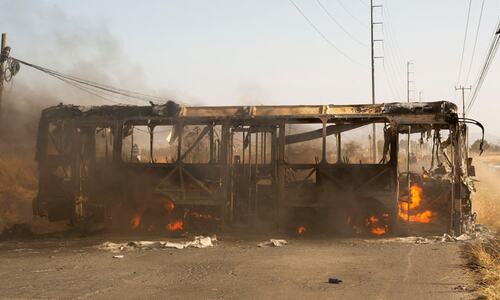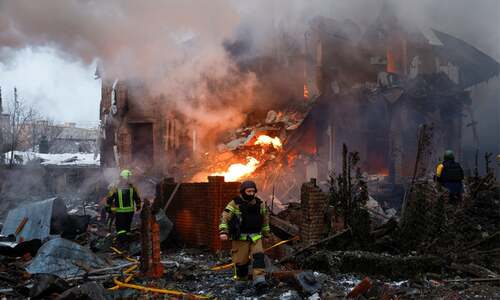THE Times Higher Education (THE) World University Rankings released last week offers some food for thought — that is, if we do not dismiss this annual exercise as a Jewish conspiracy. For Pakistan the bad news is that none of our universities figure in the first 400 institutions of higher education ranked globally. Pakistan failed to make it even to the top 100 Asian institutions.
Using carefully selected criteria, THE ranks universities across the globe according to their “core missions — teaching, research, knowledge transfer and international outlook.” As can be expected, American and European universities have the highest ranking — the California Institute of Technology, Harvard University and the University of Oxford are the top three. Asia also boasts of 20 universities that are part of this prestigious global list — the University of Tokyo was judged as the best in the continent, and China, Korea and Singapore are making remarkable headway.
According to THE, thoughtfully calibrated performance indicators are employed to rank an institution. These include: the teaching and learning environment, volume, income and reputation of research, citations of research (indicating influence), industry income that serves as evidence of innovation and global outlook as assessed in terms of the collaboration between staff, students and researchers with international colleagues.
If no other lesson is learnt, these indicate what we should be looking for in our institutions of higher learning. Research, be it in social disciplines or the physical sciences, is at the core of scholarship. The emphasis should be on research-led teaching. The basic requirements for this are highly qualified academics that are experienced in research and know how to pass their skills on to students. Funds are another essential requisite. Cash-strapped universities cannot move forward in research. In fact, Chinese universities have shown more improvement in their ranks compared to Japanese institutions because the former have received more funding. Japan’s expenditure on research has been affected by the pressure its economy faces. Research output is a key determinant of an institution’s ranking.
Societies that do not encourage research do not innovate and cannot progress.
The other factor is the environment. Societies that do not encourage research do not innovate and cannot progress. Research must be secular in its approach to be considered genuine and authentic. An interesting point to note and investigate is that universities in the Muslim world have been absent from the first 200 global rankings all these years. The sole exception in 2013-2014 is Turkey which has made its debut in the coveted list: the Boaziçi University in Istanbul was ranked 199th.
It is strange that not much notice is taken of the academic standards of students who enrol in these institutions of higher education. Although the quality of university research and teaching is important for its standing, the fact of the matter is that no university can make brilliant scholars out of students who have not mastered the tools of literacy, numeracy and critical thinking in 10 years of schooling. Yet in Pakistan academics do not give much importance to school education when planning for universities. In fact, when the Higher Education Commission was created it hogged much of the limelight and the scarce funds while school education was relegated to the back-burner.
In the West where basic education is compulsory and free, the focus lies more heavily on universities. Academics and educationists have paradoxically found that the Organisation for Economic Co-operation and Development’s Programme for International Student Assessment (PISA) lacks “validity and reliability”. They have accused PISA of “damaging education” because of the importance it attached to rankings and “the race to the top” it ignites.
If one were to use PISA as a tool to assess the education system of a country and not as a yardstick for competition, it certainly has its value. PISA has been testing students triennially since 2000 in science, mathematics and reading. It is not designed to test curriculum-based knowledge but instead it assesses the ability of 15-year-olds to apply their knowledge to real life situations. The questions are what one may describe as a test of a student’s common sense and rationality. One can presume that education that really “educates” a child and teaches him or her how to think and reason should induce rationality and logic, the key tools for lifelong education.
The city of Shanghai in China — not the whole country — has consecutively ranked at the top in the last two tests. The last test was held in 2012 and its results were announced in December 2013. Nearly 510,000 students from 65 countries participated. PISA is actually a test of a country’s education system and the results are an “approximation of reality,” as one of its protagonists stated in its defence. The factors that are considered to be vital for the success of an education system are students’ expectation and motivation, pedagogy, early childhood learning, students’ sense of belonging in school and, above all, equity in education. Isn’t that what really matters?
Published in Dawn, June 25th, 2014
































